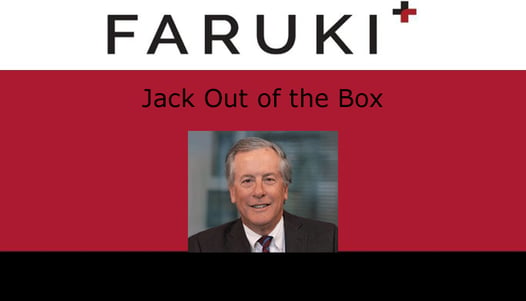- May 19, 2023
- Jack Greiner
- Jack Out of the Box
 In 2017, Abdulkadir Masharipov carried out a terrorist attack on the Reina nightclub in Istanbul, Turkey, on behalf of the Islamic State of Iraq and Syria (ISIS), a designated Foreign Terrorist Organization. Masharipov killed Nawras Alassaf and 38 others. Alassaf's family then brought this under the federal suit under Antiterrorism Act (ATA). That statute permits U. S. nationals who have been "injured . . . by reason of an act of international terrorism" to file a civil suit for damages. But instead of suing ISIS directly, the Alassaf's family sued three of the largest social-media companies in the world—Facebook, Twitter and Google (which owns YouTube)—for aiding and abetting ISIS.
In 2017, Abdulkadir Masharipov carried out a terrorist attack on the Reina nightclub in Istanbul, Turkey, on behalf of the Islamic State of Iraq and Syria (ISIS), a designated Foreign Terrorist Organization. Masharipov killed Nawras Alassaf and 38 others. Alassaf's family then brought this under the federal suit under Antiterrorism Act (ATA). That statute permits U. S. nationals who have been "injured . . . by reason of an act of international terrorism" to file a civil suit for damages. But instead of suing ISIS directly, the Alassaf's family sued three of the largest social-media companies in the world—Facebook, Twitter and Google (which owns YouTube)—for aiding and abetting ISIS.
The trial court dismissed the suit, but the Ninth Circuit Court of Appeals reversed that ruling. The U.S. Supreme Court this week reversed the Ninth Circuit ruling, holding that the social media companies did not "aid and abet" the attack under the terms of the statute.
In reaching its decision, the Supreme Court first focused on the meaning of the phrase "aids and abets." In its view, the phrase "refers to a conscious, voluntary, and culpable participation in another's wrongdoing." Alassaf's family argued that merely aiding ISIS generally satisfied the statute. The social media companies argued that the statute required that they aid and abet the actual wrongful act – here, the Reina attack. The Supreme Court agreed with the social media companies. This meant the "key question, therefore, is whether defendants gave such knowing and substantial assistance to ISIS that they culpably participated in the Reina attack." In the Supreme Court's view, Alassaf's family fell short on its proof.
As it noted, Alassaf's family "never allege that, after defendants established their platforms, they gave ISIS any special treatment or words of encouragement. Nor is there reason to think that defendants selected or took any action at all with respect to ISIS' content (except, perhaps, blocking some of it)." . . . The mere creation of those platforms, however, is not culpable. To be sure, it might be that bad actors like ISIS are able to use platforms like defendants' for illegal—and sometimes terrible—ends. But the same could be said of cell phones, email, or the internet generally. Yet, we generally do not think that internet or cell service providers incur culpability merely for providing their services to the public writ large. Nor do we think that such providers would normally be described as aiding and abetting, for example, illegal drug deals brokered over cell phones—even if the provider's conference-call or video-call features made the sale easier."
In the Court's view, "defendants at most allegedly stood back and watched; they are not alleged to have taken any further action with respect to ISIS."
The Court ultimately ruled that Alassaf's family rested their claim "less on affirmative misconduct and more on an alleged failure to stop ISIS from using its platforms." But courts do not typically impose aider and abetting liability for "mere passive nonfeasance." In the Court's view, "defendants' relationship with ISIS and its supporters appears to have been the same as their relationship with their billion-plus other users: arm's length, passive, and largely indifferent. And their relationship with the Reina attack is even further removed, given the lack of allegations connecting the Reina attack with ISIS' use of these platforms."
There was some concern that this case would have terrible implications for the Internet had the Court ruled against the social media defendants. As it turns out, the Court's ruling effectively upholds the status quo. Readers can decide if that's a good thing or a bad thing.
